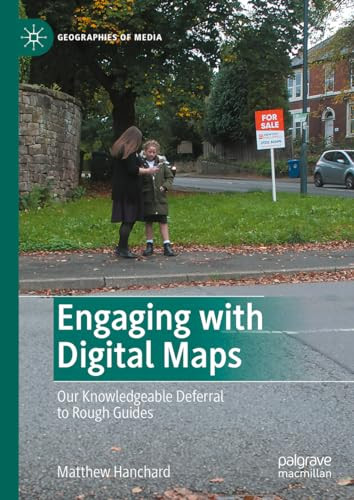(Ebook) Engaging with Digital Maps: Our Knowledgeable Deferral to Rough Guides (Geographies of Media) by Matthew Hanchard ISBN 9789819989720, 9789819989713, 9819989728, 981998971X
This book fills a gap in sociological theory surrounding how we engage with digital maps like Google Maps, Bing Maps, and OpenStreetMap (OSM). It explains how they feature in everyday life and with what social consequences. To do so, the book walks through examples of how digital maps shape social practices, from choosing which home to buy (landed capital acquisition), through to selecting routes between places. The book first provides a socio-technical background to digital maps and their development as progeny of the Internet and web rather than direct successors to paper-based ones. It then charts the evolution of theory about map use from its origin in academic cartography to contemporary thought, introducing concepts from systems-based communication models, semiotics, cognitive-behaviorism, critical cartography, and critical data and platform studies. With background concepts in place, the book moves on to develop a particular framework for analysing digital media use. Combining digital sociology and practice theory, the book works through empirical examples to cumulatively develop a new sociological theory on the social consequences of digital maps. The book argues that we defer to digital maps knowledgeably as rough guides, adopting a Bayesian logic - albeit with an awareness of their potential for error. As a result, decisions over choice of place and route - the mobility of people and things in space - become anchored within people’s deferral to digital maps. By extension, so do senses of place, sense of security, and the performance of social positions.
*Free conversion of into popular formats such as PDF, DOCX, DOC, AZW, EPUB, and MOBI after payment.


